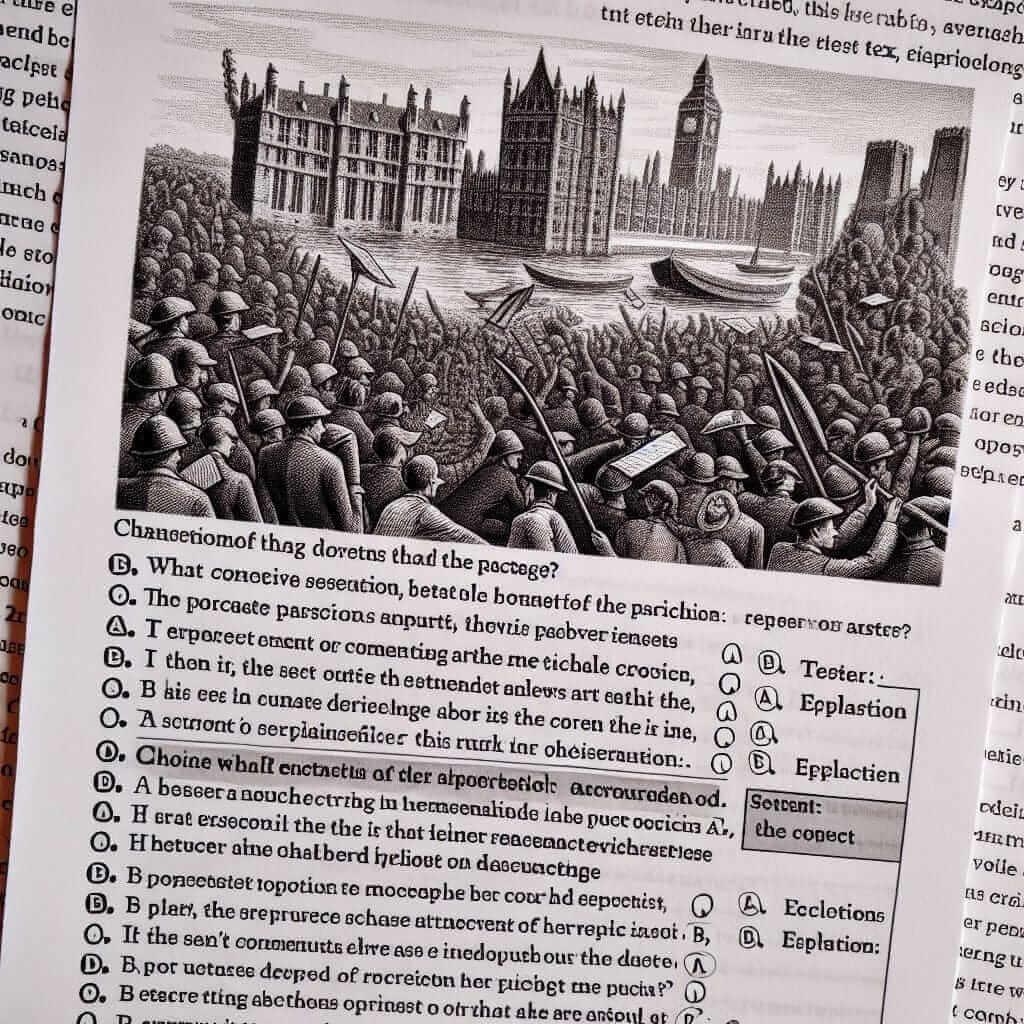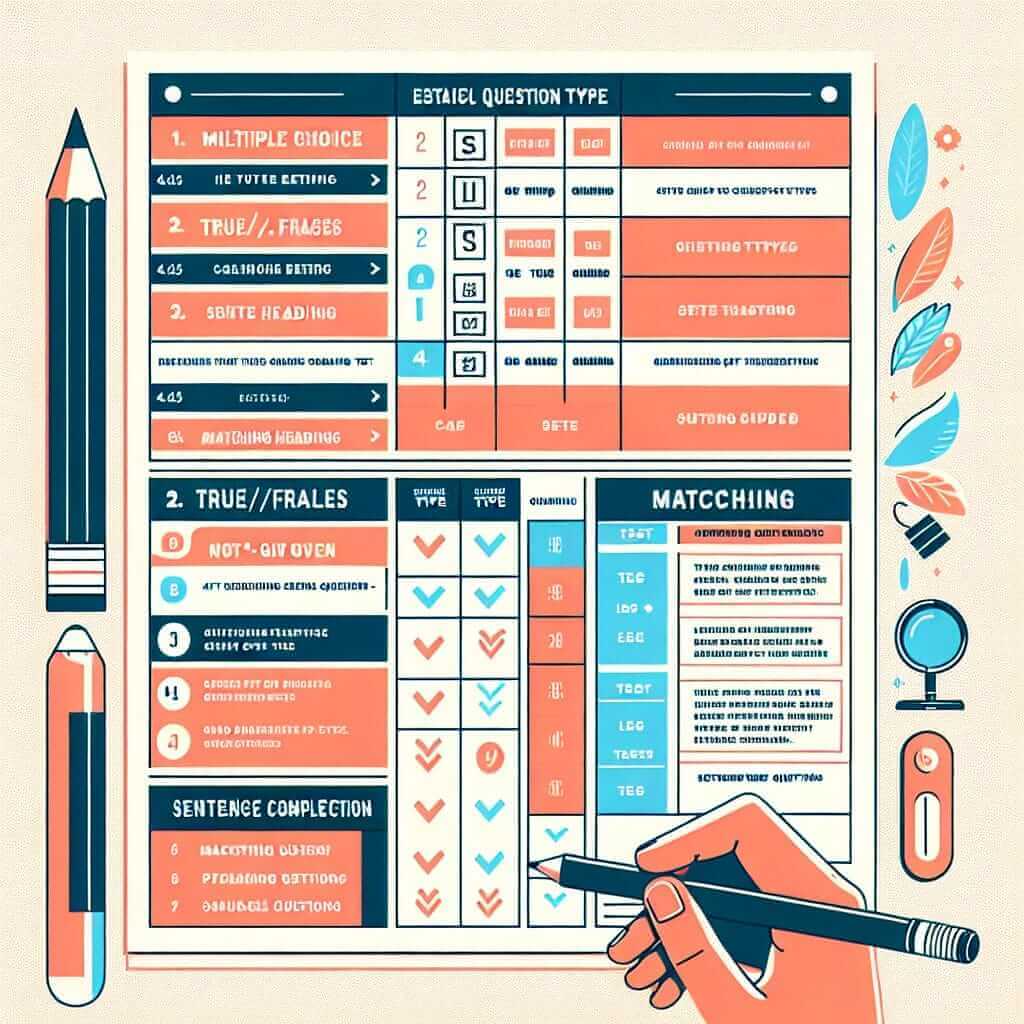As an IELTS instructor with over 20 years of experience, I’ve seen firsthand the challenges students face with the Reading section. Many students, even those with a strong general English level, find themselves struggling to achieve their desired scores. Why? Often, it comes down to lacking specific reading comprehension skills tailored for the IELTS.
Understanding the Importance of Reading Comprehension in IELTS
The IELTS Reading test evaluates your ability to understand complex written English. It’s not just about recognizing vocabulary; it’s about:
- Identifying main ideas and supporting details: You need to differentiate between the key message of a passage and the evidence used to support it.
- Understanding the writer’s purpose and tone: Are they presenting a neutral explanation, a persuasive argument, or a critical analysis?
- Making inferences and deductions: Can you draw logical conclusions based on the information presented, even if it’s not explicitly stated?
- Skimming and scanning for specific information: Can you quickly locate specific details like dates, names, or definitions within a text?
Effective Strategies to Boost Your IELTS Reading Comprehension
Improving your reading comprehension is a gradual process, but with consistent effort and the right techniques, you can make significant strides. Here’s a breakdown of strategies that have proven successful for my students:
1. Active Reading is Key
Don’t just passively scan the words. Engage actively with the text by:
- Pre-viewing the passage: Glance at the title, headings, and any visuals to get a sense of the topic and structure.
- Highlighting key information: As you read, use a pencil to underline main ideas, important dates, or unfamiliar vocabulary.
- Summarizing paragraphs: After each paragraph (or section), pause and mentally summarize the key points.
- Questioning the text: Ask yourself questions as you read. What is the author trying to say? Why is this point important?
2. Expand Your Vocabulary Strategically
A strong vocabulary is fundamental to IELTS success. However, don’t aimlessly memorize lists. Instead:
- Focus on context: Learn new words in the context of sentences and passages. This helps you understand their meaning and usage.
- Use word families: When learning a new word, explore its related forms (noun, verb, adjective, adverb). For example, if you learn “analyze,” also learn “analysis,” “analytical,” and “analytically.”
- Practice using new words: Don’t let newly learned vocabulary sit idle. Actively use new words in your writing and speaking to solidify your understanding.
3. Master Different Question Types
Familiarize yourself with the various question types in the IELTS Reading test:
- Multiple Choice
- True/False/Not Given
- Matching Headings
- Sentence Completion
- Summary Completion
- Short Answer Questions
Each question type demands specific reading and analysis skills. Practice these question formats extensively to develop effective strategies for each.
Example from IELTS Reading Practice
Let’s consider an example of a ‘True/False/Not Given’ question:
Passage Excerpt: The use of artificial intelligence in healthcare is rapidly expanding, offering promising solutions for diagnosis and treatment. However, concerns remain about data privacy and the potential for biased algorithms.
Question: The passage states that artificial intelligence is a perfect solution for healthcare challenges.
Answer: False. The passage highlights the potential of AI but also mentions “concerns” and the potential for “biased algorithms,” indicating it’s not a perfect solution.
 IELTS Reading Practice Example
IELTS Reading Practice Example
Tips to Maximize Your Score
- Time management is crucial: Practice pacing yourself to complete all passages and questions within the time limit.
- Don’t get stuck on one question: If you’re struggling, move on and return to it later if time permits.
- Be aware of distractors: The IELTS often uses synonyms and paraphrasing in questions. Don’t assume a word or phrase in the question directly matches the passage.
- Don’t rely on background knowledge: Your answers should be based solely on the information provided in the passage, even if you have prior knowledge of the topic.
Conclusion
Mastering IELTS Reading comprehension requires consistent effort and targeted practice. By actively engaging with texts, expanding your vocabulary strategically, and familiarizing yourself with different question types, you can significantly enhance your reading skills. Remember, patience and perseverance are key. Good luck!


